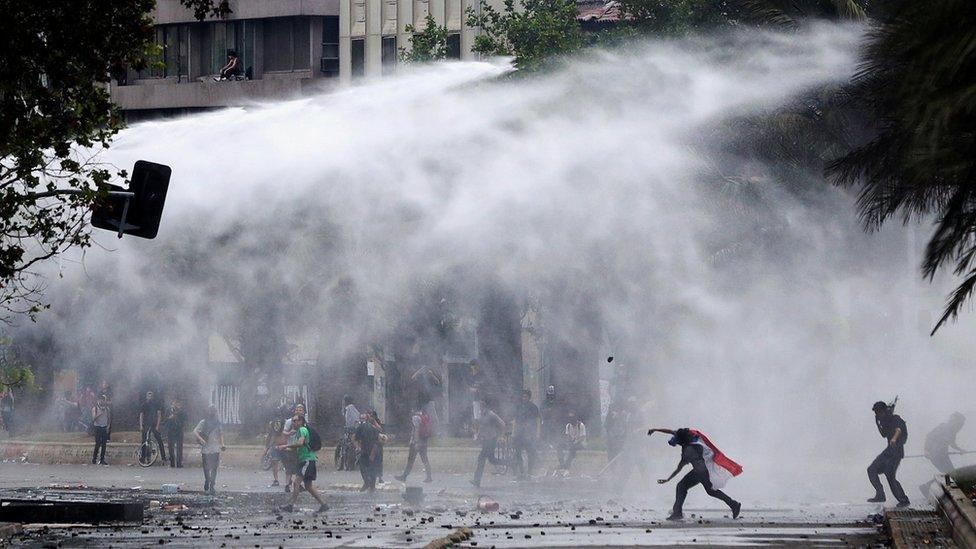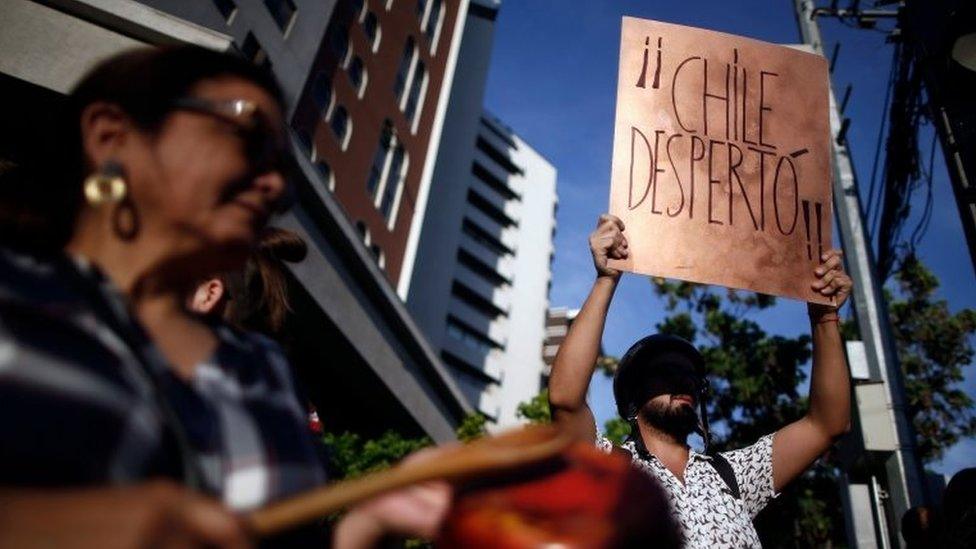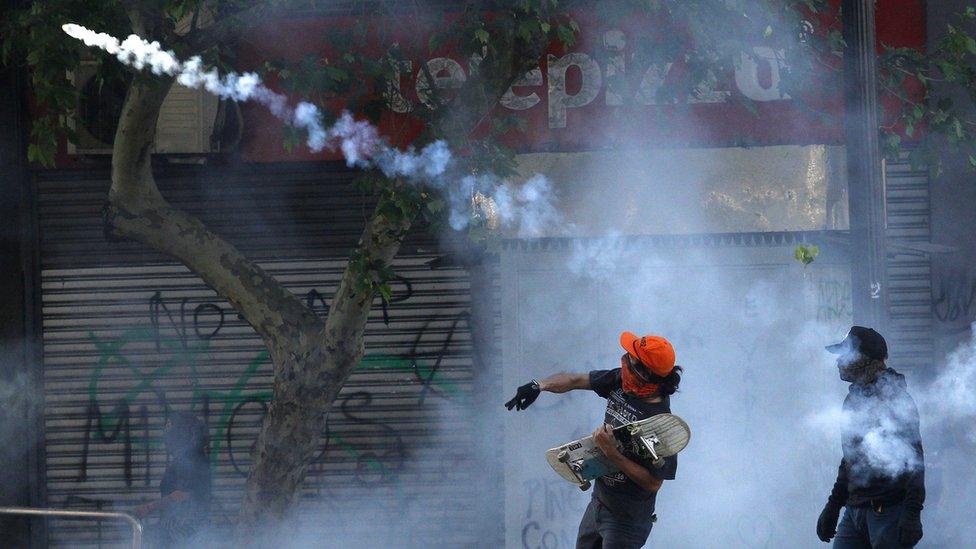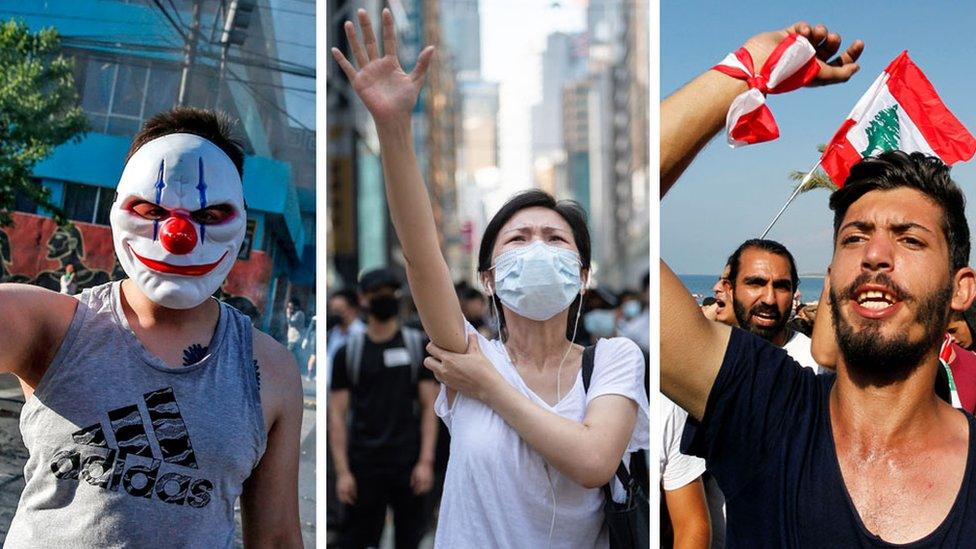Chile protests: Social reform pledges fail to quell unrest
- Published

Police used water cannon against protesters in Santiago
Thousands of workers are taking part in a general strike in Chile as protests against inequality continue even after the government pledged social reforms.
Healthcare workers, teachers and students banged pots in the capital, Santiago, late on Wednesday with police using water cannon and tear gas to disperse crowds.
Four days of unrest have left 16 dead but these marches were mostly peaceful.
Officials said they were investigating claims of violence by security forces.
Chile's National Institute for Human Rights (INDH) said five of the deaths had been caused by the armed forces, and that it had received allegations of torture by security agents.
The protests were sparked in Santiago by a now-suspended increase in metro fares but spread across the country, reflecting anger over living costs and inequality. There have been outbreaks of looting and arson.
On Tuesday, President Sebastián Piñera, a billionaire conservative who has been criticised for his response to the protests, promised to increase the basic pension by 20% and the minimum wage from $413 to $482 (£374).
He also pledged tax rises on high-earners, a law that would see the state cover the costs of expensive medical treatment and the cancellation of a planned electricity rate hike.
More than 5,000 people have been detained since protests began
Wednesday was the first day of a two-day nationwide general strike organised by Chile's main trade union, CUT, and 20 other groups.
They are demanding that the government end the state of emergency imposed in many parts of the country, including Santiago, and send troops back to their barracks.
But late on Wednesday the powerful Copper Workers Federation (FTC), which had been onboard, called for an end to the strike after agreeing to further talks with the government. Chile is the world's largest producer of copper, and the unrest is likely to affect the sector.
Chile is one of the most prosperous countries in Latin America but has high levels of inequality, and the unrest has intensified calls for broader economic and social reforms.

For many, it's too little, too late
By Katy Watson, BBC South America correspondent, Santiago
For many Chileans, Mr Piñera's concessions are too little, too late. On Wednesday, the protest was largely peaceful but the crowd felt angrier than it did before the reforms were announced. Lots of protesters were carrying signs telling President Piñera to resign.
One protester called the measures a farce, accusing the leader of tricking people with numbers.
Their anger was not just reserved for the politicians. A large group of protesters, some of them with their faces covered, was very aggressive to our team, telling us to leave. The atmosphere felt tense. It did not take long for the tear gas to start and helicopters flew overhead.
Meanwhile, accusations of heavy-handedness and human rights abuses committed by soldiers and police continue to grow. How this is handled will be the ultimate test of the Piñera administration.

- Published23 October 2019

- Published21 October 2019

- Published11 November 2019
